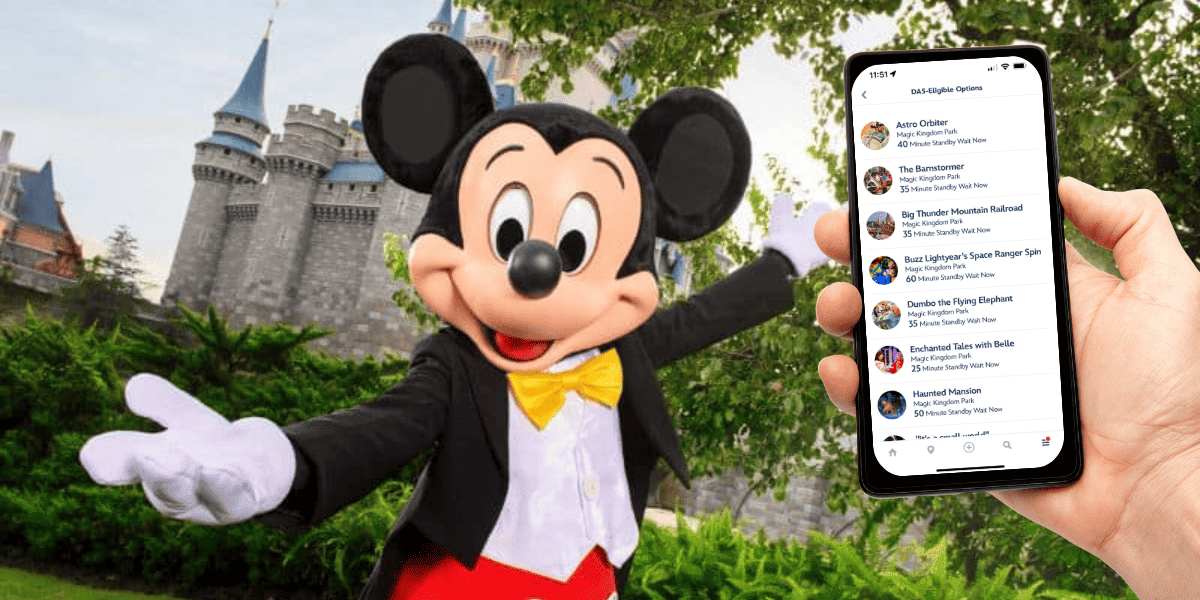Disney Defends Security After Controversial Request for Disabled Guest’s Partner to Act as Service Animal
Policies Now in Question
Disneyland is renowned for its inclusivity and commitment to creating magical experiences for all Disney guests, including those with disabilities.
But this recent viral social media story has raised eyebrows, anger, and questions by the community as to why this happened in the first place.

Disneyland’s Service Dog Controversy: A Lesson in Awareness and Inclusion for Disney Cast Members
Disneyland is renowned for its inclusivity and commitment to creating magical experiences for all guests, including those with disabilities. The park has long been an advocate for accessibility, with a variety of accommodations available to ensure that everyone, regardless of their physical or mental health needs, can enjoy the park to the fullest.
However, a recent incident shared by a guest on Reddit sheds light on the need for improved training and awareness when it comes to handling service animals.
Disneyland asked me why my boyfriend couldn't do the tasks of my service dog does for me instead of bringing him in?
byu/bluepixie13 inservice_dogs
The story, posted by Reddit user u/bluepixie13, details the experience of a visitor with a service dog at Disneyland. While the first day went smoothly, the second day presented an unexpected challenge.
Upon entering the park, the guest, who uses a wheelchair, and her German Shepherd service dog were met by a security cast member who allegedly blindsided the dog, causing him to bark. Though the bark was described as light and unthreatening, the cast member reacted negatively, stating that actual service dogs do not bark.
According to the post, the cast member then questioned the guest about the dog’s role, asking why her boyfriend couldn’t perform the tasks that the dog was trained to do.
The guest explained that the service dog helps with mobility tasks, such as picking up dropped items, pressing buttons, and performing deep pressure therapy (DPT) for PTSD. Despite this explanation, the cast member allegedly told them that if the dog barked again, they would be asked to leave the park.

This encounter left the guest feeling anxious and questioning the legitimacy of their service dog, sparking feelings of imposter syndrome. They even considered leaving the park for a break, despite having trained their dog for hours to ensure his ability to perform his important tasks in a public setting.
What Does This Mean for Disneyland and its Cast Members?
While Disneyland prides itself on being an inclusive space for all guests, incidents like this raise important questions about the training and awareness of its cast members, particularly when it comes to accommodating guests with service animals.
Disneyland’s policy on service animals is clear, stating that service animals are allowed in most areas of the park as long as they are under control and do not disrupt the enjoyment of other guests. However, the response from one cast member in this situation suggests a lack of understanding about the vital role service animals play in the lives of those with disabilities.
Service animals are trained to perform specific tasks that assist their handlers with physical and mental disabilities. For many people with disabilities, these animals are not just pets; they are lifelines.
From guiding individuals with visual impairments to providing emotional support for those dealing with PTSD or anxiety, service animals offer independence and stability. A well-trained service dog, like the one in this story, may bark on occasion, but that does not disqualify them as a legitimate working animal.

Disney’s Responsibility Moving Forward
For Disney, this incident presents an opportunity to reflect on its training and protocols for cast members. While the company has made significant strides in promoting accessibility, ensuring that its employees are educated on the nuances of service animals is an essential next step in maintaining an inclusive atmosphere.
The question remains: was it appropriate for the cast member to question the role of the service dog and suggest that another person could perform the tasks? The answer, in most cases, is no. Service animals are specifically trained to perform tasks that their human handlers cannot do themselves. By questioning the need for a service animal, the cast member risked undermining the guest’s independence and self-worth.
Disneyland, as a world leader in theme park experiences, has a responsibility to ensure its cast members are not only familiar with the law but also understand the personal and emotional significance of service animals to their guests. Cast members must be trained to approach situations with sensitivity and compassion, ensuring that every guest’s experience is as magical as promised, regardless of their abilities or the presence of a service animal.

As Disney continues to welcome visitors with diverse needs, it’s crucial that employees are equipped to handle situations with empathy and knowledge. More comprehensive training, along with clearer communication about the rights of guests with service animals, could prevent incidents like this from happening in the future.
Conclusion: The Need for Change at Disney
While Disneyland’s commitment to accessibility is well-documented, the experience shared by u/bluepixie13 highlights the importance of continuous improvement. Service animals are an essential part of many visitors’ experience, and it is critical that all Disneyland cast members are trained to respect their role.
Moving forward, this incident serves as a reminder that inclusivity is not just about providing physical accommodations but also about fostering an environment of understanding, empathy, and respect for all guests, regardless of their abilities or needs.
By reinforcing training and encouraging more compassionate interactions between cast members and guests with service animals, Disneyland can maintain its reputation as the happiest place on earth for everyone.






Disney has long been a leader in disability access, however in resent years they are showing that rather than making the parks more accessible they are making it more difficult for those with disabilities to feel welcome. This is just another example of that change. This service animal has been trained not only to help with physical tasks but also as a therapy for PTSD. The animal may have been trained to bark if someone approaches their handler from the rear or an angle the handler can’t see to warn the handler.
This is just another example of Disney caring less about people with disabilities especially those that cannot be seen such as PTSD, anxiety, autism, TBI, Chrone’s disease, diabetes, and many others. Changes made to the DAS pass have excluded many who have mobility issues or cannot stand in long queues for other reasons. I understand that there have been people who have abused this pass system and it needed to be fixed, making the pass harder to get for those with disabilities is not the fix needed.
Agreed! Disney is far from all inclusive anymore! They are making it impossible for those of us that are disabled and not able to use their “accommodations”
One correction to your article. “Emotional Support Animals” are not considered “service animals” under the ADA (Americans with Disabilities Act). Unfortunately, there are too many people who are presenting their untrained pets as “service dogs”/ESAs that cause disruptions. (Watching a person with a number of obviously untrained dogs in strollers, wearing costumes, that bark, move without regard to their surroundings, sit on furniture and benches while at a theme park just gives all service dogs a bad name.) Under the ADA the only thing that can be asked of a person with a service animal is what tasks the animal does for the handler. For example, assisting with mobility, picking up dropped items, alerting for a medical condition, etc. are all the types of tasks that a true service dog performs. According to her post, this guest had a service dog with her that performed specific tasks for her. We do need more education and understanding about true service animals and their necessary lifeline to allow a person a better life. (I am a long-time volunteer for a non-profit service dog organization that breeds. raises, trains and places wonderful service dogs.)
If Disney thinks they are disability accessible for all anymore that is a laugh. Only if you have certain developmental disabilities. Those that still have physical disabilities and has had DAS for years no longer qualify. So now those of us that are disabled are no longer feeling included. There “ideas” for our accommodations are not always helpful and they don’t care. So this story is just one more instance that that are NOT all inclusive.